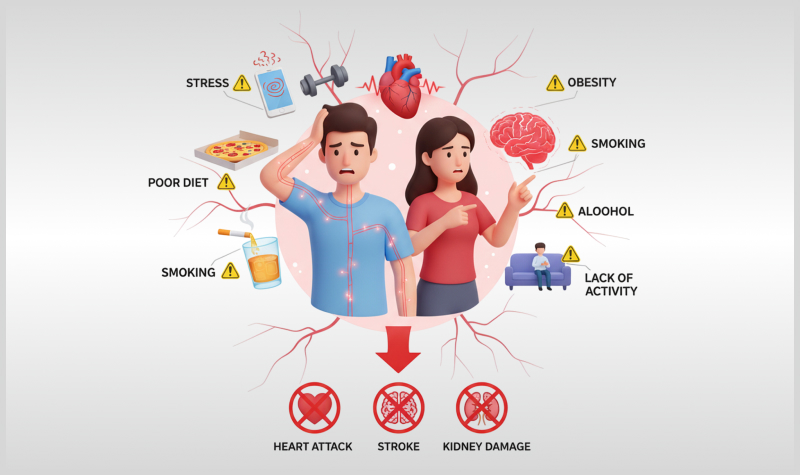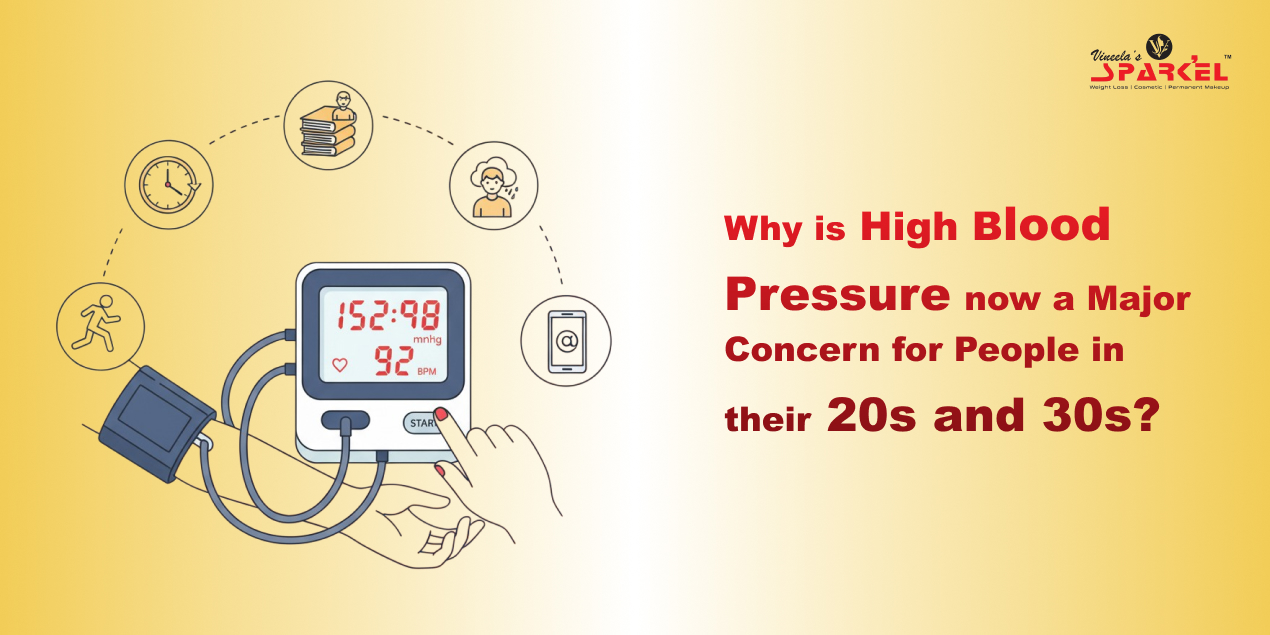Why is high blood pressure now a major concern for people in their 20s and 30s?
High blood pressure, or hypertension, was once a disease confined to those in their 40s and above. However, recent research and reports from the American Heart Association (AHA) reveal a disconcerting trend: more and more young adults in their 20s and 30s are contracting high blood pressure. This trend has devastating health consequences - and a clear appeal to prevent it from the very beginning.
Is High Blood Pressure Truly That Prevalent in Your 20s and 30s?
High blood pressure, or hypertension, is normally a disease of adulthood that typically strikes middle-aged and older persons. But doctors and researchers have noted that it is not unusual for young adults in their 20s and 30s to acquire high blood pressure. Though the majority of young adults will be unaware and present no noticeable symptoms, the influences of diet, sedentary lifestyle, extremely high levels of stress, and irregular sleep patterns can increase blood pressure levels progressively over a period of time.
Mild hypertension at these young adult stages can lead to future cardiovascular disease, including heart disease and stroke, if not treated. Young adults should hence be conscious of their blood pressure status, look for healthier lifestyles, and include regular checks in their life.
Why Are Young Adults Getting High Blood Pressure Sooner?
The explanations are lifestyle and genetics together:
Work and study stress: Long working hours, exams, and stressful work raise cortisol, blood pressure.
Unhealthy diet: Processed foods, high-sodium meals, and fast food drive sodium to undesirable levels
Physical inactivity: Couch living and screen time translate to reduced activity, which complicates cardiovascular risk.
Obesity: Weight loss in young adults directly reduces the risk of premature hypertension.
Family history: Heredity is also a factor in premature high blood pressure.
Symptoms of Hypertension in Young Adults
- Frequent headaches
- Dizziness or fainting spells
- Fatigue and lack of focus
- Nosebleeds (rare)
But otherwise, high blood pressure is referred to as the silent killer simply because individuals have no idea anything is wrong until it in fact does cause damage. That's why blood pressure testing must become second nature, even if you are not feeling any symptoms, and maintaining Healthy Sleep Habits is equally important for keeping your blood pressure in check.
Long-Term Health Risks of Early-Onset Hypertension
Your high blood pressure in your 20s and 30s isn't just a sudden attack that happens to you at the time - it puts risk into the decades that follow. At the top of some of the most significant risks are:
- Heart disease and heart attack
- Stroke and brain decline
- Kidney damage
- Wear and tear on the blood vessels
Early hypertension increases the risk of la-life dementia too, researchers on cardiovascular health report. And that's why it needs to be treated early.
How Can Young Adults Avoid High Blood Pressure?

Good news: early life choices can be a lifesaver. These are some evidence-based methods for prevention
Reduce alcohol and salt: Reduce sodium to less than 1,500 mg a day and reduce alcohol intake.
Healthy food for the heart: Increase fruits, vegetables, and whole grains
Exercise daily: At least 30 minutes of exercise, 5 times a week.
Decrease stress: Meditation, yoga, and sleep can each lower blood pressure.
Monitor your weight: Normal BMI decreases risk of hypertension.Daily, smaller habits prevent long-term issues.
Conclusion
High blood pressure has become a big concern for people in their 20s and 30s, silently increasing the risk of heart disease, stroke, and long-term health complications. The good news is that early awareness, healthy lifestyle changes, and regular monitoring can make all the difference. At Vineela’s Sparkel Wellness Center, We're dedicated to leading young adults towards preventive care with healthy diets, nutritional balance, and sustainable eating-empowering you with the right food choices today for a healthier tomorrow.
FAQs
1. Should young adults check their blood pressure regularly?
Yes. Without symptoms, regular testing catches hypertension early and averts long-term illness.
Can people in their 20s and 30s really get high blood pressure?
Yes. High blood pressure is no longer found just in older people -lifestyle, stress, and genetics are making it a norm even among younger populations.
Why is high blood pressure dangerous in your 20s or 30s?
Untreated hypertension at a young age can harm the heart, kidneys, and brain, increasing risks of stroke, heart disease, and premature aging.
How can young adults prevent high blood pressure?
Healthy eating, minimizing salt intake, regular exercise, stress management, adequate sleep, and checking blood pressure can all help.
